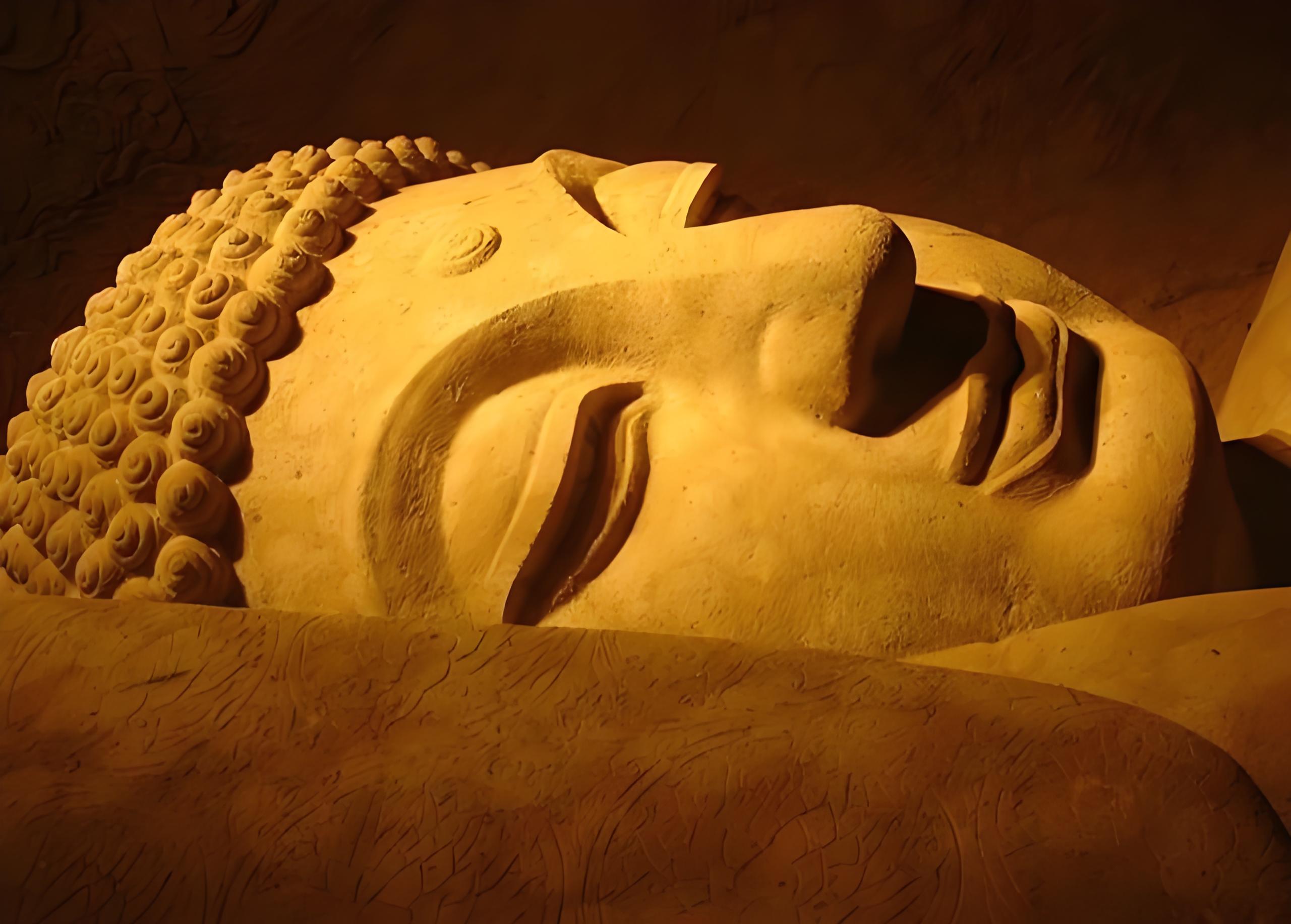Many people often confuse rebirth and reincarnation. These concepts, though similar, hold distinct meanings in Buddhist philosophy. Understanding their differences is crucial for grasping Buddhist teachings. Furthermore, it helps in comprehending the path to liberation from suffering. This article will clarify these ideas from a Buddhist viewpoint. We will explore the intricate details.
The Concept of Rebirth in Buddhism
Rebirth, a central tenet of Buddhism, focuses on the continuation of consciousness. It is not the transmigration of an identical soul, which is seen in reincarnation. Instead, rebirth suggests the perpetuation of karmic energy. This energy carries the patterns of actions and intentions from one life to the next. Moreover, this process is not about a fixed entity moving between lives. Instead, it involves a dynamic continuation of causes and conditions. Consequently, each new existence is shaped by past karma, creating unique experiences.
The Buddha taught about the “five aggregates,” which form our experience. These aggregates are form, sensation, perception, mental formations, and consciousness. During death, these aggregates dissolve, but the karmic energy remains. This energy drives the arising of a new set of aggregates, leading to a new life. Thus, rebirth is a continuous flow of cause and effect. It is not a static transfer of a soul. Therefore, each moment is a new beginning influenced by the past.
The Idea of Reincarnation
Reincarnation, on the other hand, typically implies a soul’s transmigration. This soul or “self” is seen as a permanent entity. It travels from one body to another. This idea is found in many other religions, like Hinduism. In these views, the soul retains its essence. It moves through different lives. However, Buddhism rejects this concept of a fixed self. The Buddha taught the principle of “anatta,” or no-self. Therefore, there’s no permanent entity that transmigrates during the process of rebirth.
The idea of a soul is an illusion according to Buddhist philosophy. This attachment to a permanent self is a root cause of suffering. Consequently, clinging to this notion leads to fear of death and the desire for immortality. Thus, understanding “anatta” is paramount to ending this cycle of suffering. This understanding paves the way for liberation from rebirth itself. Therefore, the distinction between rebirth and reincarnation is important in Buddhist thought.
Key Differences: Rebirth vs Reincarnation
The fundamental difference lies in the concept of “self” or “soul.” Rebirth in Buddhism operates without a permanent soul. It’s driven by karma and the impermanent five aggregates. Reincarnation generally involves the transmigration of a fixed soul. Furthermore, the Buddhist perspective emphasizes the lack of a permanent entity that is passed on. In essence, it’s about the continuity of a process and not a thing.
Moreover, rebirth is considered to be more like a flame passed from one candle to another. The second flame isn’t exactly the same, yet it’s directly caused by the first. In contrast, reincarnation is more like a person moving from one house to another. The person remains the same, just in a different dwelling. Therefore, the Buddhist understanding of rebirth highlights the impermanent and ever-changing nature of life. Thus, liberation from the cycle of rebirth, or samsara, is the ultimate goal.
The Role of Karma in Rebirth
Karma is the driving force behind rebirth in Buddhist teachings. Every action, thought, and intention creates karmic energy. Consequently, this energy shapes our future experiences. Positive actions, therefore, lead to positive outcomes, while negative ones lead to negative outcomes. The law of karma is not a matter of punishment or reward. Instead, it’s a natural law of cause and effect. Consequently, our past actions influence our current and future lives.
Furthermore, the quality of our actions determines the kind of rebirth we might experience. For example, virtuous behavior may lead to fortunate rebirth. Alternatively, non-virtuous actions may result in less fortunate circumstances. Therefore, understanding karma is essential for navigating the path to liberation. It highlights the importance of acting consciously and compassionately in every moment. Thus, we can influence the course of our future existences by refining our actions.
How Understanding Rebirth Affects Practice
Understanding rebirth profoundly impacts Buddhist practice. It provides a framework for understanding the nature of suffering. This helps in cultivating compassion and wisdom. Therefore, it encourages us to strive for ethical conduct. Consequently, it encourages us to work towards liberation from the cycle of suffering. Furthermore, the idea of rebirth also cultivates a long-term perspective. It inspires us to consider the consequences of our actions not only in this life. It also affects our future existences.
Moreover, the concept of rebirth encourages a deep reflection on impermanence. Therefore, we can learn to let go of attachments. It also fosters a greater appreciation for the preciousness of human life. Consequently, it encourages us to make the most of every opportunity. This is essential for our practice of dharma. Thus, the Buddhist view of rebirth offers not fear but a reason to cultivate wisdom. It also cultivates compassion and ethical behavior.
The Path to Ending Rebirth
The ultimate goal of Buddhism isn’t better rebirth. It is to transcend the cycle of rebirth altogether. This liberation is called Nirvana or enlightenment. Moreover, Nirvana is not a place. It is a state of being free from suffering and ignorance. The path to Nirvana involves practicing the Eightfold Path. This path includes right understanding, right thought, right speech, and right action. It also includes right livelihood, right effort, right mindfulness, and right concentration.
Through diligent practice of the Eightfold Path, one can gradually purify the mind. Consequently, this weakens the force of karma. This process also reduces the likelihood of future rebirths. Eventually, when ignorance and craving are completely eradicated, liberation occurs. Therefore, ending the cycle of rebirth is a central aspiration. This involves cultivating wisdom, compassion, and ethical conduct. Thus, liberation is an attainable goal through dedicated practice.
Rebirth vs Reincarnation: A Summary
In summary, the concepts of “buddhism rebirth vs reincarnation” are quite distinct. Rebirth in Buddhism focuses on the continuation of karmic energy. It does not involve the transmigration of a permanent soul. Reincarnation, on the other hand, generally involves a soul. This soul moves from one life to another. Moreover, the Buddhist concept of “anatta,” or no-self, rejects this notion of a permanent soul. Consequently, understanding this difference is crucial for grasping Buddhist teachings. It is the key to understanding the nature of suffering and the path to liberation.
The Buddhist understanding of rebirth is not fatalistic. Instead, it emphasizes the power of our choices. Our actions directly affect our future experiences. This empowers us to take responsibility for our lives. It also encourages us to cultivate positive qualities. Therefore, the path to freedom is a journey of self-transformation and understanding. It culminates in the cessation of suffering and the end of the rebirth cycle. Thus, the distinction between rebirth and reincarnation is a cornerstone of Buddhist philosophy. It guides us on the path to enlightenment.
Conclusion
The distinction between buddhism rebirth vs reincarnation is more than semantic. It reflects deep philosophical differences. Therefore, grasping the nuances of these concepts provides a solid foundation for understanding Buddhist teachings. Furthermore, it illuminates the path to liberation. Through mindful action and wisdom, we can eventually escape the cycle of suffering and rebirth. This journey requires dedicated effort and a clear understanding of the teachings. Therefore, we can all embark on the path to enlightenment. Thus, we can fully experience the peace of Nirvana.


